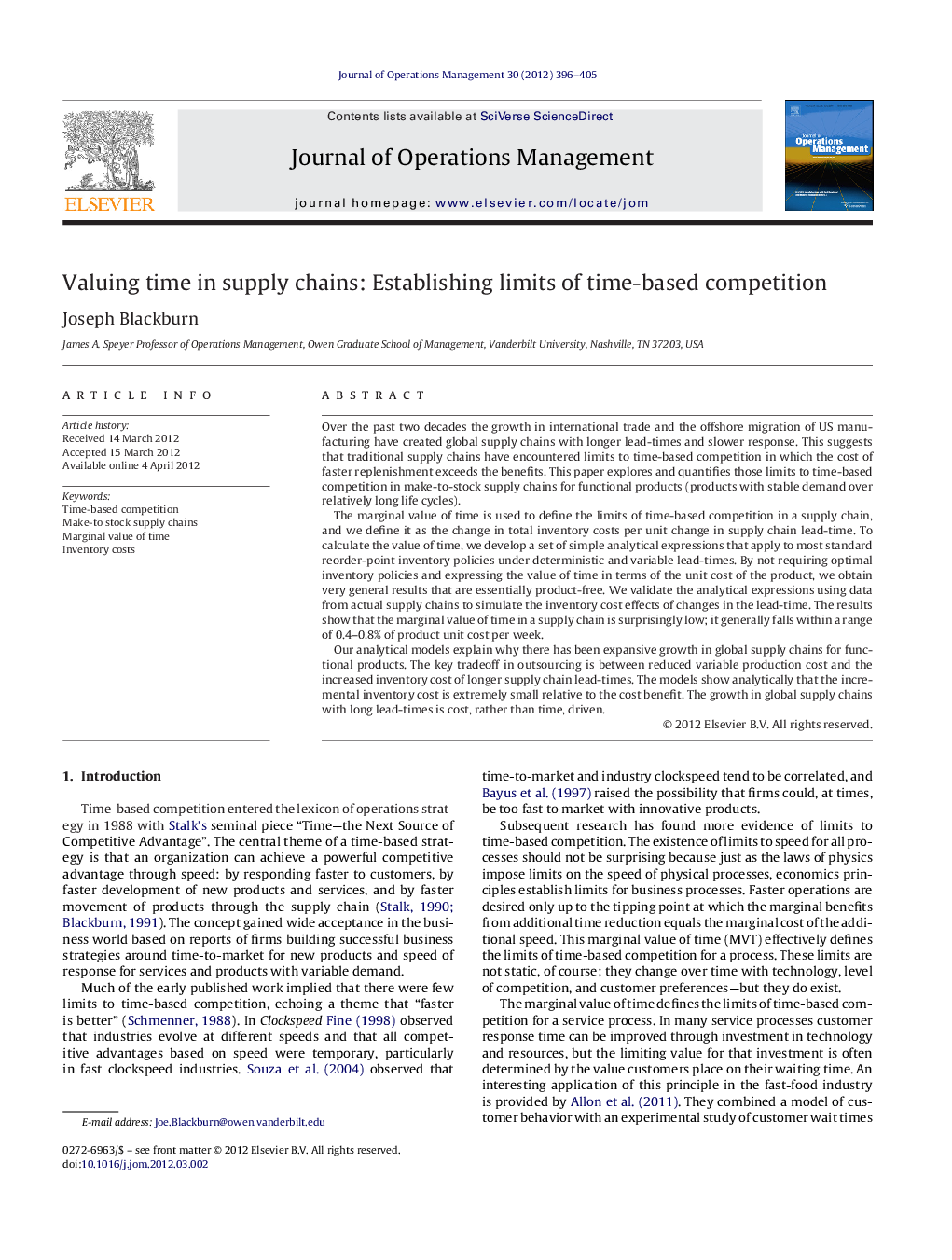| Article ID | Journal | Published Year | Pages | File Type |
|---|---|---|---|---|
| 1031869 | Journal of Operations Management | 2012 | 10 Pages |
Over the past two decades the growth in international trade and the offshore migration of US manufacturing have created global supply chains with longer lead-times and slower response. This suggests that traditional supply chains have encountered limits to time-based competition in which the cost of faster replenishment exceeds the benefits. This paper explores and quantifies those limits to time-based competition in make-to-stock supply chains for functional products (products with stable demand over relatively long life cycles).The marginal value of time is used to define the limits of time-based competition in a supply chain, and we define it as the change in total inventory costs per unit change in supply chain lead-time. To calculate the value of time, we develop a set of simple analytical expressions that apply to most standard reorder-point inventory policies under deterministic and variable lead-times. By not requiring optimal inventory policies and expressing the value of time in terms of the unit cost of the product, we obtain very general results that are essentially product-free. We validate the analytical expressions using data from actual supply chains to simulate the inventory cost effects of changes in the lead-time. The results show that the marginal value of time in a supply chain is surprisingly low; it generally falls within a range of 0.4–0.8% of product unit cost per week.Our analytical models explain why there has been expansive growth in global supply chains for functional products. The key tradeoff in outsourcing is between reduced variable production cost and the increased inventory cost of longer supply chain lead-times. The models show analytically that the incremental inventory cost is extremely small relative to the cost benefit. The growth in global supply chains with long lead-times is cost, rather than time, driven.
► The marginal value of time defines the limits of time-based advantage in supply chains. ► In supply chains the time value measures the marginal inventory cost of longer lead-times. ► We show that the time-value for a make-to-stock supply chain is surprisingly small. ► The low time-value is consistent with the observed growth in global supply chains with long lead-times.
